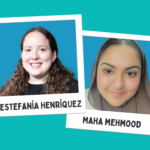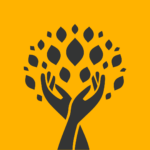MCH Leads Health Equity Edition – In order to advance health equity for MCH populations, beginning January 2023, MCH Leads will feature trainees’ health equity-focused work. We look forward to highlighting trainees’ experiences supporting the health and well-being of vulnerable and underserved populations and communities. Also, their work assessing and addressing the underlying causes of health disparities–and their efforts to promote diversity, equity, and inclusion–ultimately improving MCH outcomes. In addition, we encourage trainees to reflect on how the MCH Leadership Competencies are applicable to their health equity-focused stories.
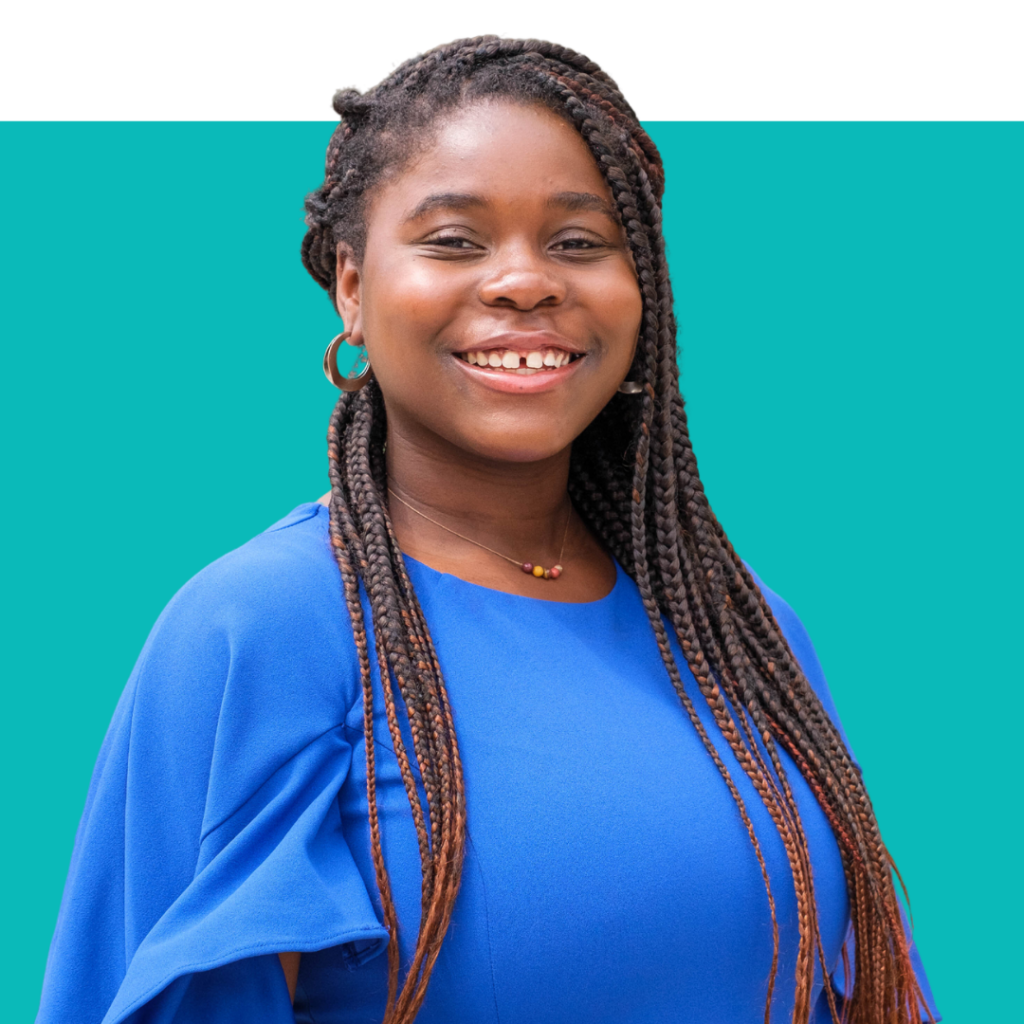
(photographed by Ian J. Battaglia)
Abigail Suleman (She/Her) is a menstrual advocate and co-founder of Blood Buds, an organization founded to combat period poverty and care for the environment by making sustainable menstruation accessible to all people. Abigail is a recent graduate from the University of Illinois Chicago Center of Excellence in Maternal and Child Health where she earned her Master of Public Health in Maternal and Child Health Epidemiology. Driven by the stories of her loving Nigerian family, she seeks opportunities to understand the intersections between menstrual equity, racial justice, breastfeeding, and global health. Blood Buds grew from Abigail’s desire to address needs like period poverty, partner with youth and marginalized communities, and promote environmentally conscious action. She is now committed to advancing equity in sexual, reproductive, and family health by promoting equitable research and participating in spaces of storytelling as a doula and advocate. In the next year, she would like to strengthen her epidemiologic skills and work with community-based organizations domestically and in francophone populations. She is also interested in pursuing a clinical career to improve the quality of family health & wellness. If you are interested in connecting with Abigail and learning more about her work and passions, you can find her on LinkedIn!
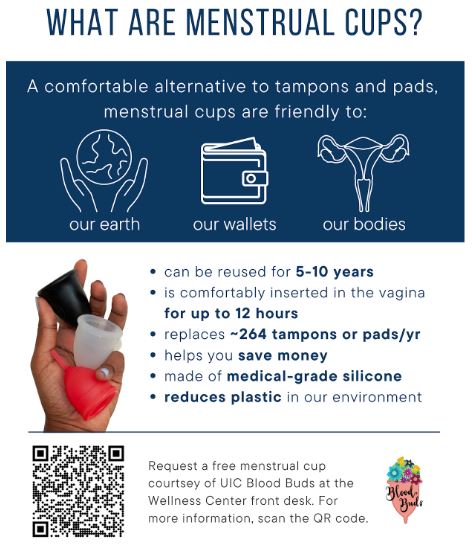
Over the past 2 years, I have served as the director of Blood Buds, an organization I founded to combat period poverty and care for the environment by making sustainable menstruation accessible to all people. I started this project to distribute 500 menstrual cups to members of the University of Illinois Chicago (UIC) and surrounding Chicago community using a $5,280 grant from the UIC Office of Planning, Sustainability, and Project Management. We also hosted educational sessions and held a campus-wide conversation with panelists involved in academic research, period product distributions, and the business of menstrual cups. There, we discussed the intersections of period poverty (the inadequate financial access to proper menstrual management resources including knowledge and materials),1,2,3,4 sustainable menstruation, and combating the harmful stigma surrounding periods. #endperiodpoverty
As I began my Master of Public Health (MPH) program in Maternal Child Health Epidemiology at UIC, Blood Buds became a firmly-rooted and registered student organization. Students entered the space eager to share, lead, and learn to advocate for themselves, their pain, and their stories. Our vision was not just about distributing period products; it was also about achieving equity and menstrual health, defined as: “a state of complete physical, mental, and social well-being and not merely the absence of disease or infirmity, in relation to the menstrual cycle.” 5
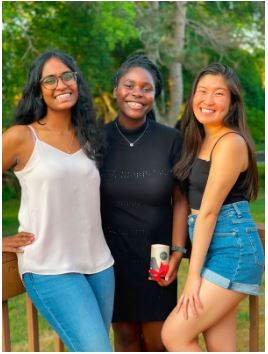
During my MPH courses, I learned the importance of continuously evaluating our progress at Blood Buds, conducting needs assessments, and returning our data findings back to the community. Over the past year, I have become more intentional in providing the university community with context regarding the gaps in access/care that students still face. At the beginning of this year, I submitted my first ethics research proposal to assess the menstrual health needs of students to my university’s Institutional Review Board (IRB) as a Principal Investigator. I gathered a few of the Blood Buds leaders of all genders to join me. My women-led team consisted of faculty mentor Dr. Supriya Mehta, along with three graduate students and two undergraduate women of color in the fields of nutrition, public health, medicine and neuroscience, and biochemistry. Our backgrounds helped us develop the research and survey questions from existing literature and later recruit students from several disciplines, including non-health fields.
I used the development of the survey instrument to teach my colleagues how to use the data collection tool REDCap and the statistical software SAS. Our survey was expected to take 15-20 minutes and was piloted by the research team and two other students: a non-binary undergraduate student menstruator and a male-identifying graduate student non-menstruator. Since the survey was conducted online, it was also reviewed for visual accessibility by an additional student consultant who self-identified with having a sight impairment.

Our study from February to April 2023 was the first menstrual health assessment conducted at UIC. Although UIC initiated a free menstrual hygiene program in 2021, our data revealed that both period poverty and period-related class disruption were prevalent within our sample, highest among students who were not non-Hispanic White and who had disabilities, and associated with having a higher number of period-related symptoms. Through this experience, I have learned how to successfully navigate IRB ethical reviews, collaborate with other student researchers, and provide consultation and expertise to universities along with other populations and communities.
Near the conclusion of my MPH in January, a few things changed for me: I was observing stress and burn out in myself and my student colleagues. I learned from my MCH coach Dr. Janine Hill that I ought to advise my Blood Buds leaders to rest and reduce their commitment load. I needed to do the same. I knew that to actively “pass the cup” to the next generation of leaders, I had to equip them to lead their own projects. This involved modeling skills (like meeting facilitation, program management, and self-care), developing a mentorship opportunity for new graduates, and also learning from my emerging visionaries.

At the end of April, I had the pleasure of being mentored by Ms. Tamiko Nettles-Harris, who I recently met while educating social services leaders in Chicago about reusable menstrual pads and underwear. As the director of the #EveryWomanProject, Ms. Tamiko invited me and another Blood Buds leader to chat with middle and high school students about menstruation and relationships. We taught each other about gender inclusion, working with youth, and preparing for school-engaged menstrual workshops.

The next few years for Blood Buds are looking beautiful as graduating students are still seeking to be involved as mentors who provide resources and guidance to the next generation of radical leaders. This season feels like the tentative moments just after a blooming season; I am ready, equipped, and excited to pour into others’ journeys in leadership, advocacy, and self-care.
References
1. Casola, A. R., Luber, K., Riley, A. H., & Medley, L. (2022). Menstrual Health: Taking Action Against Period Poverty. American Journal of Public Health, 112(3), 374–377.
https://doi.org/10.2105/AJPH.2021.306622
2. Boyers, M., Garikipati, S., Biggane, A., Douglas, E., Hawkes, N., Kiely, C., Giddings, C., Kelly, J., Exley, D., Phillips-Howard, P. A., & Mason, L. (2022). Period poverty: The perceptions and experiences of impoverished women living in an inner-city area of Northwest England. PloS One, 17(7), e0269341.
https://doi.org/10.1371/journal.pone.0269341
3. Medina-Perucha, L., Jacques-Aviñó, C., Valls-Llobet, C., Turbau-Valls, R., Pinzón, D., Hernández, L., Briales Canseco, P., López-Jiménez, T., Solana Lizarza, E., Munrós Feliu, J., & Berenguera, A. (2020). Menstrual health and period poverty among young people who menstruate in the Barcelona metropolitan area (Spain): Protocol of a mixed-methods study. BMJ Open, 10(7), e035914.
https://doi.org/10.1136/bmjopen-2019-035914
4. Sommer, M., & Mason, D. J. (2021). Period Poverty and Promoting Menstrual Equity. JAMA Health Forum, 2(8), e213089
https://doi.org/10.1001/jamahealthforum.2021.3089
5. Hennegan, J., Winkler, I. T., Bobel, C., Keiser, D., Hampton, J., Larsson, G., Chandra-Mouli, V., Plesons, M., & Mahon, T. (2021). Menstrual health: A definition for policy, practice, and research. Sexual and Reproductive Health Matters, 29(1), 1911618.
https://doi.org/10.1080/26410397.2021.1911618
